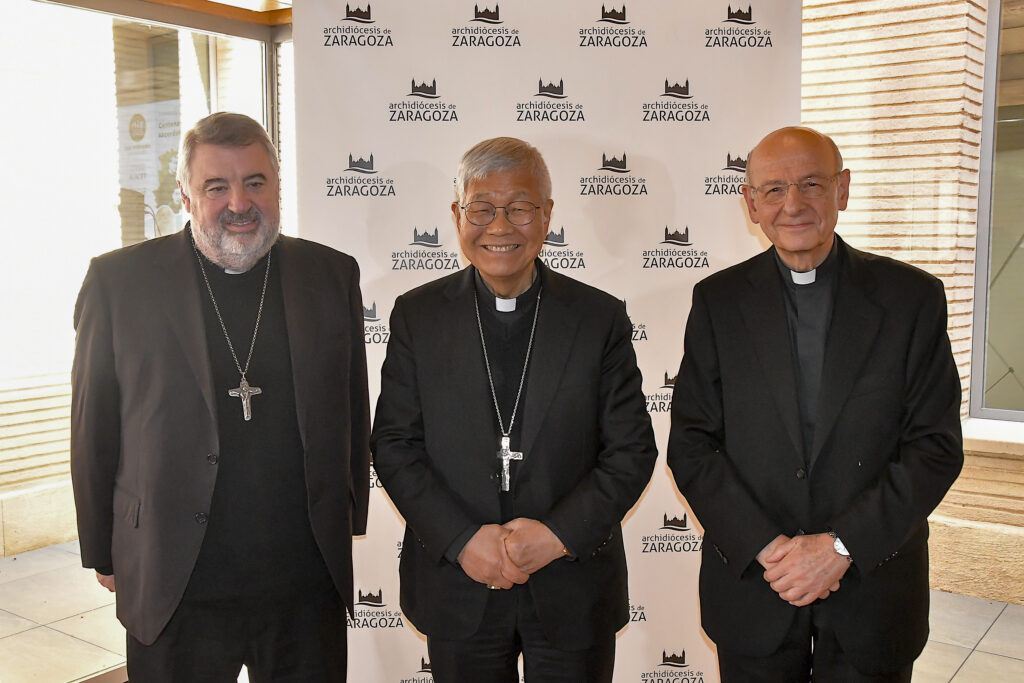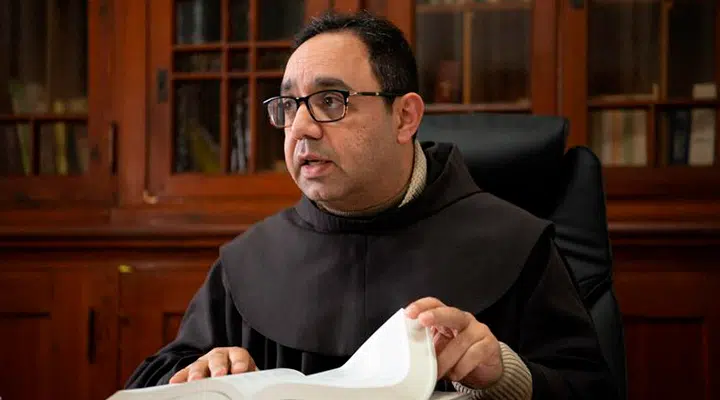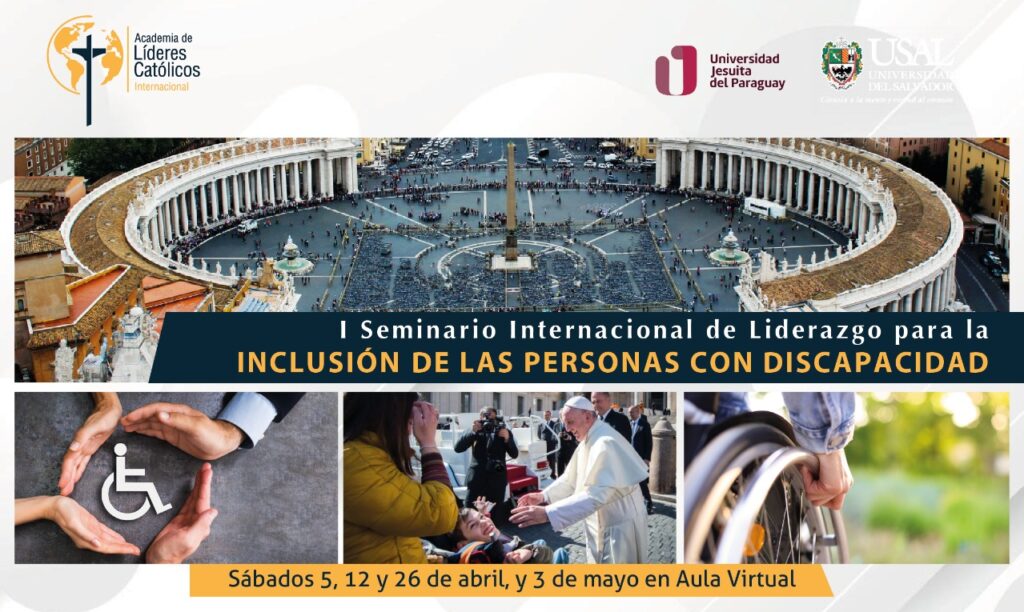Reflection by Monsignor Enrique Díaz: Faith, if it is not translated into works, is completely dead
XXIV Ordinary Sunday

Monsignor Enrique Díaz Díaz shares with the readers of Exaudi his reflection on the Gospel of this Sunday, September 15, entitled: “Faith, if it is not translated into works, is completely dead.”
***
Isaiah 50, 5-9: “I offered my back to those who beat me”
Psalm 114: “I will walk in the presence of the Lord”
James 2, 14-18: “Faith, if it is not translated into works, is completely dead”
Saint Mark 8, 27-35: “Peter said: ‘You are the Messiah’. – It is necessary that the Son of man suffer much”
We have reached a situation where we always seek comfort or pleasure and avoid suffering and effort at all costs. The three readings of this day launch us along difficult and hostile paths for those who decide to seek God’s will. Isaiah recognizes that pain and incomprehension have been his companions when seeking God’s will, and he embraces Him as his rock of salvation. James, demanding, asks for works that make faith credible and challenges us: “How do you demonstrate your faith without works?”
Jesus in the Gospel also questions us seriously. He and his disciples are on the road and there, walking, is where problems and crises arise, where they question the goal, where the path taken is reviewed. We are already halfway through the Gospel of Saint Mark… Jesus has performed wonders for life and for the oppressed people. He has freed the sick and the possessed, he has restored dignity and value to the marginalized. He has denounced the hypocritical and servile attitudes of the scribes and Pharisees. Likewise, he has announced his Good News throughout Galilee and beyond the borders, and the time has come to ask ourselves what has been achieved. It seems like a small thing: the blindness of the Pharisees, the praise of a people who seek immediate answers to their needs, the interests of his disciples, the scandal and the estrangement of his family. Is this the path that Jesus wants? Then comes the question to those close to him: “Who do people say that I am?”, and the answers are not long in coming. They compare him with the most important people that the Jew knows, and one would expect Christ to be very happy with these answers… but another more incisive question follows: “And you, who do you say that I am?”. It is not an accidental or unimportant question, but the fundamental question in life
Our answers would not be very far from those given by the disciples. Certainly, there is admiration for Christ as a man, as a person, as the founder of a religion, as the great teacher. There are millions who call themselves his followers, and who in one way or another are baptized and recognize themselves as Christians. But is this what is important for Christ? There are also those who attack him and seek to tarnish his name, there are those who would like to destroy him, or for him to be ignored… but Christ continues to insist on his question: “And you, who do you say that I am?” He does not expect confessions or monuments, he does not ask if you wear a medal on your chest or if you have a beautiful picture in your room, but he asks about your life. Not by your words, but by your life, who do you say that I am? Of course, there are multitudes of us who call ourselves Christians, but perhaps we would receive the same reproach directed at Peter: “Get behind me, Satan! For you do not judge according to God, but according to men.” Because despite calling ourselves his followers, we accommodate ourselves more to the criteria of men than to the criteria of Jesus, because we seek the first places, because we fight tirelessly for power, because we lie and steal, because we turn our backs on our neighbor, because we have not understood what Jesus wants! We use his name for our own ends.
Like Peter, we would now give Jesus some very practical advice about his way of being the Messiah, because his proposal seems absurd to us in a modern world. We would tell him that he has to adapt, that he has to renew his schemes. That it is not possible to continue dreaming of a world where everyone is a brother, that there are differences, and we must accept them, that sacrifice and struggle for the little ones and the poor does not lead to triumph, that great successes are achieved in another way… and Jesus would again tell us that these are not his ways, but the ways of men. If we look carefully at the disciples, we will see that they follow Jesus, but they have not changed their ideas or their mentality. They resist losing their plans for triumph, and now Jesus presents them with a new way of following him. It is no longer just about accompanying him and sharing the mission of healing and preaching. Now following him represents conflict, suffering and death. Only in this way can truth and life be defended. For this reason, although he runs the risk of being left alone, he clearly restates his proposal: “Whoever wishes to come with me must renounce himself, take up his cross and follow me.” It is the same proposal that Jesus makes to us. There is no other way to be his disciple than to take up his cross. We must renounce our own projects of power, personal interests, satisfactions and ambitions. Christ is radical. The only way to follow him is to carry the cross, the only way to preserve life is to lose it for him and for the Gospel.
These are not superficialities, they are not a religion to be dressed up in, they are not appearances, they are a complete and definitive surrender to his gospel. It is touching all aspects of our life with his word, it is opening our ears and hearts and letting ourselves be invaded by his criteria. We cannot set aside Jesus’ question. Today we must have an attitude of listening. I must soak up what Jesus tells me. I must ruminate on it and assume it in every moment of my life, even in the smallest ones. Today I need to speak honestly with Jesus about my feelings, my desires and ask him if they are not wrong, if they are not a way of thinking in the style of men. Today, I need to compare my life with the gospel and ask myself serious questions: Who is Jesus for me? To what extent am I willing to follow him? Is it worth living life as I am doing?
Look upon us, Lord, with eyes of mercy and make us experience your love vividly, so that we can follow you sincerely and serve you with all our strength. Amen.
Related

Saint Josemaría, 100 Years of Priesthood: A Legacy That Transcends Borders
Exaudi Staff
28 March, 2025
2 min

Father Marwan: “The Holy Land needs pilgrims. We need their consolation”
Fundación CARF
27 March, 2025
4 min

Large families are once again concerned about the lack of support such as school lunch grants or access to preschools
Exaudi Staff
26 March, 2025
1 min

Call for Applications to the First International Leadership Seminar for the Inclusion of Persons with Disabilities
Exaudi Staff
25 March, 2025
2 min
 (EN)
(EN)
 (ES)
(ES)
 (IT)
(IT)

